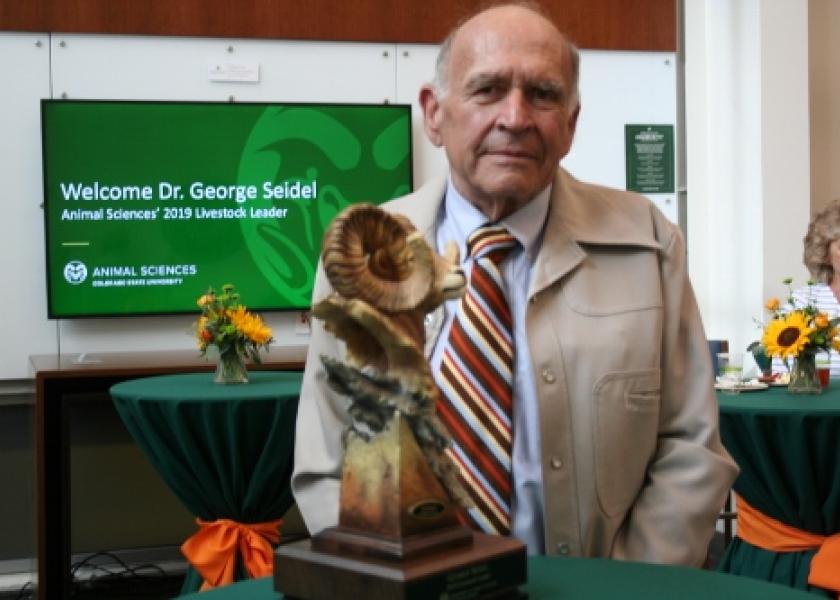CSU Honors George Seidel

George Seidel probably needs a bigger display case. He’s accumulated a long list industry awards and academic honors, padded last week with Colorado State University’s 2019 Livestock Leader Award.
Seidel, an emeritus University Distinguished Professor at CSU's College of Veterinary Medicine and Biomedical Sciences, has spent his career at the forefront of bovine reproduction research, and continues to collaborate with other CSU researchers and test theories on his own herd of purebred and commercial Angus cattle.
Among Seidel’s achievements over 40 years on the CSU faculty:
- He founded one of the first embryo-transfer laboratories in the world at CSU in 1973.
- He was the first scientist to successfully split an embryo to create two clones.
- He was instrumental in developing the processes for sex-sorting semen, a technology in common use today.
- Seidel was inducted as a member of the National Academy of Sciences in 1992.
- He has published over 200 research articles in scientific journals.
- He has developed and tested numerous synchronization and artificial insemination protocols for beef and dairy cattle.
Over the years, Seidel has collaborated with other CSU researchers and students to conduct trials in his own herd at Rabbit Creek Angus Ranch near Livermore, Colo. Most recently, he’s managed a herd of heifers to evaluate his concept for an “all-heifer, no-cows” production system. This experimental system uses sexed semen to allow each heifer to replace herself with a heifer calf. Once calves are weaned, their dams ship to a feedlot for finishing, at a young enough age to produce high-value carcasses with USDA Quality Grades of Choice or better.
Seidel notes that 70% of the feed nutrients used in a cow-calf operation go to cows, and 70% of that is for maintenance. Cows generally lose value before selling as culls at around six years of age. In the heifer system he says, all animals on the ranch are growing and gaining value. Economically, he says the system might fit better in regions with more abundant year-round forages than in the northern Colorado foothills, but his early results indicate the system can reduce feed requirements and greenhouse gas emissions by about 30%
Seidel grew up on a dairy operation in Pennsylvania, earned his BS at Penn State, his MS and PhD degrees at Cornell and completed a post-doctoral program at Harvard before joining the faculty at CSU.







